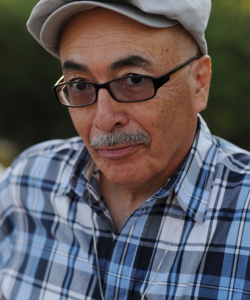GalleyCrush: The Sunflower Cast a Spell to Save Us From the Void

Jackie Wang’s The Sunflower Cast a Spell to Save Us From the Void, forthcoming from Nightboat Books on January 26, 2021.
Jump to navigation Skip to content

Jackie Wang’s The Sunflower Cast a Spell to Save Us From the Void, forthcoming from Nightboat Books on January 26, 2021.
“Unnatural cycles seemed to be / establishing themselves, without regard to our lives.” In this reading and conversation hosted by Green Apple Books, Henri Cole reads from his latest poetry collection, Blizzard (Farrar, Straus and Giroux, 2020), and speaks to Pulitzer Prize–winning author Forrest Gander about inspiration and the writing process.
In Yusef Komunyakaa’s poem “Anodyne,” he writes an ode to his body and its survival, and catalogues the parts of his body that make it his own with lines such as: “I love my crooked feet / shaped by vanity & work” and “The white moons / on my fingernails.” As the poem progresses, the images transform and expand to mythological proportions: “this spleen floating / like a compass needle inside / nighttime, always divining / West Africa’s dusty horizon.” Write an ode to your body that starts with the crooked parts and continues by going past the physical into the mythological.

“We are all authors. Let us acknowledge everyone.” —Juan Felipe Herrera, author of Every Day We Get More Illegal
“Would you agree it’s possible to be both enlightened and in the dark?” For the 2019 Blaney Lecture, an annual lecture on contemporary poetry and poetics created by the Academy of American Poets, Terrance Hayes presents “Survey of an American Century” and reflects on the last century of poetry at the Lillian Vernon Creative Writers House in New York.
Submissions are open for the TulipTree Publishing Underdogs Story Contest. The editors seek work in any genre—fiction, nonfiction, or poetry—that responds to the “underdog” theme of the fall/winter issue of TulipTree Review. “It’s easy for the powerful, the strong, and even just the loud to get our attention, but we would argue it’s much more satisfying when the underdog lands in the spotlight for upsetting the odds.” The winning writer will receive $1,000 and publication in TulipTree Review.
To submit, e-mail a work of fiction or nonfiction of up to 10,000 words or a poem of any length with a $20 entry fee by September 23. There is no limit on the number of entries per writer, and entry fees may be submitted by PayPal or by mail. All entries are considered for publication. Visit the website for complete guidelines.
TulipTree Publishing was established in 2015 with the mission to “tell stories that need to be told.” In addition to printing a biannual literary journal, the organization also publishes an annual story anthology and a series of books dedicated to raising funds for various social causes.
“Butter lamp, incense stick, bees wax / votive, the occasion of poem, rites I enact…” In this video poem, Shin Yu Pai reimagines the traditional Wang Yeh Boat Burning Festival, a Taoist ritual, in the context of personal grief. Created in collaboration with filmmaker Scott Keva James, the short film was commissioned for the Ampersand Live showcase in Seattle. Pai is the final judge for Slippery Elm’s Deanna Tulley Multimedia Prize, which is open for submissions until September 30.
On August 26, I curated a virtual reading highlighting New Orleans writers to remember, as I said at the event, all the people, all the cultural places, all the businesses, all the family artifacts, all the schools, all the neighborhoods, and the ways of being that were lost physically and dismantled systematically by Hurricane Katrina. It is hard to believe, but August 29 marked the day the levees broke in New Orleans fifteen years ago.
To commemorate the occasion, Dr. Mona Lisa Saloy, Tom Piazza, Alison Pelegrin, José Torres Tama, Lolis Elie, and Asia Rainey read from their work and shared their experiences. Fourteen-year-old New Orleans saxophonist Akeel Salah Muhammad Haroon treated us with a performance to close the evening.
Readings & Workshops program coordinator Ricardo Hernandez, who helped with tech support, said of the event: “The featured readers were all incredible. I was especially moved to hear Lolis Elie read from “The Whys” and I looked up the piece so I could quote it accurately: ‘Some of us came back because we didn’t believe that the insurance company that we’d dutifully paid for decades would cheat us in our hour of gravest need. (If Dante Alighieri had endured the inferno of our flood, he would have kindled a special fire for insurance companies!)’”
Curating this event was fun but challenging, especially with the added pressure of doing this virtually and praying for no tech hiccups. Luckily it all worked out and our virtual audience was pleased. My goal was to highlight all the ways Hurricane Katrina impacted the city’s writers. It was hard to curate because so much is at stake with a reading that represents the loss and trauma of an entire city. I was happy that each writer brought a different voice and perspective to the reading.
Thank you to all of those who joined us on Facebook for the live event. If you missed the reading, you can watch it here. There is also a wonderful piece written by Joshua Barajas for PBS NewsHour about our event.
Writing about Katrina can be painful, but mostly it is a celebration of what makes New Orleans so special. As Saloy says in the PBS NewsHour piece, “We’re not just authors. We are the carriers of our culture.”
Kelly Harris is the literary outreach coordinator for Poets & Writers in New Orleans. Contact her at NOLA@pw.org or on Twitter, @NOLApworg.“Dawn in New York has / four columns of mire / and a hurricane of black pigeons / splashing in the putrid waters.” In this installment of the Paris Review’s Poets on Couches video series, Monica Youn reads and discusses “Dawn,” a poem by Federico García Lorca, translated by Greg Simon and Steven L. White.
In “Killing My Sister’s Fish” by Sharon Olds, which appears in her 1996 poetry collection, The Wellspring, she writes of a child pouring ammonia into the bowl of her sister’s pet goldfish and ruminates on the action “as if something set in motion / long before I had been conceived / had been accomplished.” Reflect on a time when you did something wrong, or even sinister, as a child and list the physical details of the event. Write a poem that narrates this memory as truthfully as possible and consider why the event remains so vivid in your mind.